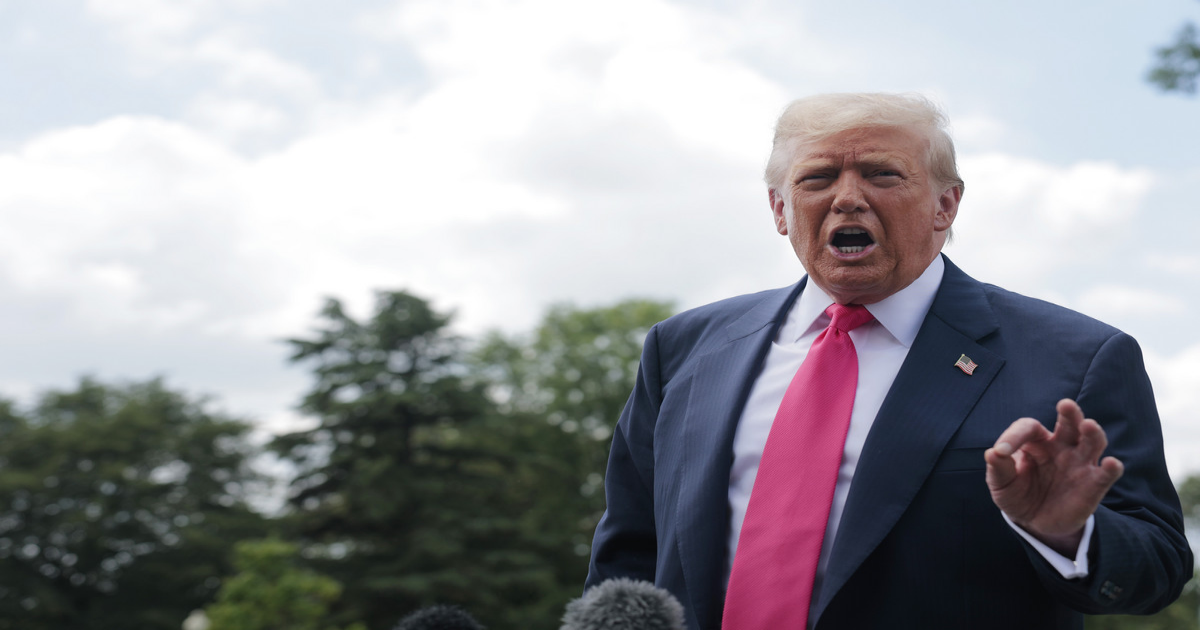It’s the latest sign that Trump has lost control of the Epstein narrative, and that the saga has broken Washington containment and permeated deep into popular culture. That makes it the worst kind of White House mess.
South Park, which has aired since 1997 and just premiered its 27th season, has over the years become a boundary-pushing, comedic touchstone. It has mercilessly mocked political figures including Al Gore, George W. Bush, Barack Obama and Hillary Clinton. It frequently offends viewers of all political stripes — among other things, it portrays the Devil as sensitive and emotionally mature and regularly critiques organized religion — and it remains an essential part of the American comedy landscape. Its creators, Matt Stone and Trey Parker, just signed a five-year deal with Paramount reportedly worth $1.5 billion.
The show — which isn’t explicitly ideological and is more anti-establishment in tone, often delighting in puncturing political correctness — has gone after Trump before. But not so clearly or directly. Its latest attack on the president puts it in the company of many other comedians or online influencers who have been teeing off on Trump over Epstein in recent weeks — prima facie evidence that Trump has misread the priorities of the young men who powered him back into office.
When Trump swept back into office, he did so in large part by convincing often non-political young voters to head to the polls and pull the lever for him. Last fall, he was ubiquitous on podcasts and streams that appeal to many of those voters — the kind where the subject matter had ostensibly nothing to do with politics. Trump seemed to understand from decades of experience in front of a camera how to talk about anything and everything. He was unafraid of long, unscripted media hits. Suddenly, though, he’s sounding just like the enemies he vanquished.
“No matter how much success we have had, securing the Border, deporting Criminals, fixing the Economy, Energy Dominance, a Safer World where Iran will not have Nuclear Weapons, it’s never enough for some people,” he wrote on Truth Social on July 12, in a self-pitying post wondering why his supporters seemed to be abandoning him.
Almost overnight, Trump seemed to lose sight of why he was popular with this demographic in the first place: His straight talk, his ability to call out bullshit, his willingness to pontificate on almost anything, his promises to pull back the curtain on Washington and stick it to a government that always seemed to be hiding something.
Democrats are naturally seizing on his missteps, but the real problem is the issue has extended far beyond the D.C. universe, where it is animating those whose comprehension of the government is marked by vague distrust. The Epstein affair is now a cultural phenomenon, rather than purely political one.
A quick look at many of the podcasters who host Trump-friendly or Trump-agnostic shows reveals just how much this issue resonates beyond simple partisan politics.
At the recent ESPYs, an annual televised awards show dedicated to the best athletes of the year, boundary-pushing comedian Shane Gillis — who has fans across the political spectrum — went right at the Epstein controversy.
“There was supposed to be an Epstein joke here, but I guess it got deleted,” he said. “It probably deleted itself, right? Probably never existed, actually. Let’s move on as a country and ignore that.”
Avowedly pro-Trump podcasters are also zeroing in on the strange whiff emanating from the Epstein situation. Andrew Schulz, a comedian and podcast host who interviewed and voted for Trump, said that his Epstein defense was “insulting our intelligence.” Podcaster Shawn Ryan, who also had Trump on his show during the 2024 campaign, said on July 15, Trump “is potentially destroying his entire base by just dismissing it and closing the case … I am extremely frustrated.”
Theo Von, the comedian and podcaster who hosted Trump and Vice President JD Vance on his show before the election, quoted an X post from Vance insisting the Epstein files should be released and asked, “Yeah, what changed?”
In 2024, Trump seemed to have mastered the art of talking to and connecting with a burgeoning online group of young, disaffected Americans. Now we’re seeing there are limits to his control of these largely cultural spaces. As comedians known for their edginess continue to attack him, it’s a sign that he’s beginning to resemble so many other politicians.
